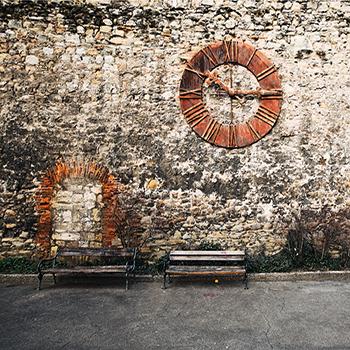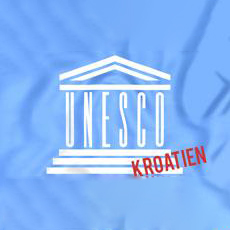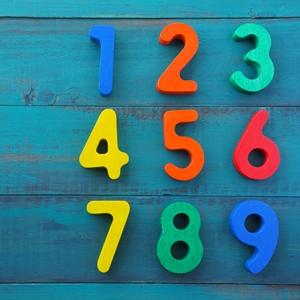In most European languages the names of the months are based on the Roman calendar.
As a result they are easy to recognise and understand for speakers of any of those languages.
Take the month of February, for example:
- February (English)
- Februar (German)
- фебруар Februar (Serbian)
- Februar (Bosnian)
- Février (French)
- Febbraio (Italian)
- Februari (Swedish)
- Φεβρουάριος Februarios (Greek)
The months and their meanings in Croatian
In contrast to this, in Croatian the months originate from archaic Slavic words and phrases which poetically depict the changing of the seasons and the different tasks related to those seasons:
siječanj
– January
timber-cutting time
veljača
– February
probably from the pagan Slavic festival “Velja noć”
ožujak
– March
“lying month”, the weather’s very unstable
travanj
– April
the season of growing grass
svibanj
– May
the time of budding trees and plants
lipanj
– June
linden-blossom time
srpanj
– July
harvest time
kolovoz
– August
time for driving the harvest wagon
rujan
– September
season of animal mating
listopad
– October
leaves are staring to fall
studeni
– November
month of cold
prosinac
– December
month of begging
Did you know?
Croatians often refer to the months informally by number, e.g. prvi (short version of prvi mjesec – first month, i.e. January), drugi (second month, February), treći(third month, March), rather than by using their proper names.
How about other slavic languages?
Although the names of the months are similar in Polish and Czech, some of them represent different months! For example, in Czech and Polish listopad means November – rather than October in Croatian – perhaps because the leaves stay on the trees longer in those countries?
As illustrated in the example above, both Bosnian and Serbian use the Latin month names. This is one of the reasons why you'll be generally understood in Croatia if you use these relatively 'standard' words.
Did you know?
In most languages the word for month originates from the word moon, since months originally corresponded to lunar phases. In Croatian the same word mjesec means both moon and month.
Some useful vocabulary when talking about months!
Test yourself with our vocabulary trainer!
Below you'll find a multiple choice quiz for the days of the week set. If you enjoy the quiz, take a look at our vocabulary trainer page, there are lots more word groups to test yourself on!
Which word means: this spring
0 questions answered
0 correct answers
0 incorrect answers
25 words remaining






